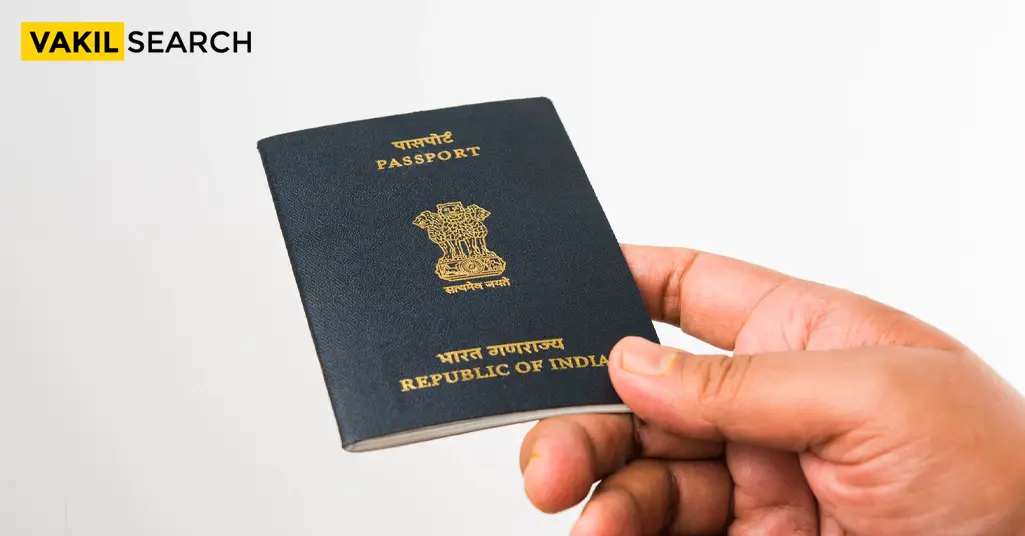This article explains the differences between ECR and ECNR passport issued by the Indian government. It discusses eligibility criteria, clearance requirements, and benefits of each passport type.
In India, a passport is a crucial document required for international travel. The government of India issues two types of ECR and ECNR Passport. The distinction between these two passports is crucial, as it determines whether a person requires clearance from the Protector of Emigrants (POE) to travel overseas.
ECR stands for Emigration Check Required, while ECNR stands for Emigration Check Not Required. The government of India categorises passport holders into two categories based on their educational qualifications and professional skills. This categorisation ensures that people with lower educational qualifications or limited skill sets can avoid fraudulent recruitment agents or employers.
This article will delve into the differences between ECR and ECNR passport.
Criteria for Categorisation
The government of India categorises passport holders based on the following criteria:
- Educational qualifications
- Professional skills
- Income tax returns
If an individual satisfies any of the below-mentioned criteria, he/she is eligible for an ECR and ECNR Passport.
- If the individual has passed 10th grade or higher
- If the individual has an educational qualification that is equivalent to or higher than a diploma from a government-recognised institution
- If the individual has a professional degree or diploma recognised by a government regulatory body such as the Medical Council of India, the Bar Council of India, etc
- If the individual is a taxpayer and has filed an income tax return for the previous three years, with an average annual income of ₹10 lakhs or more.
Individuals who do not meet any of the above criteria are considered eligible for an ECR passport.
Emigration Check Required (ECR) Passport
An ECR passport is issued to individuals who have yet to pass the 10th standard or who have not been able to meet any of the eligibility criteria mentioned above. An ECR passport holder is required to obtain clearance from the Protector of Emigrants (POE) if he/she is travelling to any of the following countries for employment purposes:
- Afghanistan
- Bahrain
- Indonesia
- Iraq
- Jordan
- Kuwait
- Lebanon
- Libya
- Malaysia
- Oman
- Qatar
- Saudi Arabia
- Sudan
- Syria
- Thailand
- United Arab Emirates
- Yemen
The clearance from the POE is obtained by submitting various documents, including employment contracts, visas, and travel tickets. The POE checks these documents thoroughly to ensure that the individual travels overseas for genuine employment purposes and is not duped by fraudulent recruitment agents or employers.
Emigration Check Not Required (ECNR) Passport
An ECNR passport is issued to individuals who meet any of the eligibility criteria mentioned above. An ECNR passport holder is not required to obtain clearance from the POE if he/she travels to any of the countries mentioned above for employment purposes.
An ECR and ECNR passport holder can apply for a passport under the Tatkal scheme, which ensures that the passport is issued within three working days of applying. However, an ECR passport holder cannot apply for a passport under the Tatkal scheme.
Eligibility for ECR Passport
An ECR passport is issued to individuals who have not passed the 10th standard or who have not been able to meet any of the eligibility criteria for an ECR and ECNR Passport. However, in certain cases, an individual may be issued an ECR passport even if they meet the ECNR eligibility criteria. For instance, if an individual has not filed income tax returns for the previous three years or cannot provide sufficient proof of their professional qualifications, they may be issued an ECR passport.
Importance of Checking Passport Status
It is essential to check the passport status before applying for a new passport or renewing an existing one. This is because the passport status may affect the processing time, fees, and eligibility for certain schemes like Tatkal. Checking the passport status can be done easily online through the Indian government’s official passport website.
Conclusion
The distinction between an ECR and ECNR passport is crucial for individuals planning to travel overseas for employment. It is important to understand the eligibility criteria and the requirements for obtaining clearance from the Protector of Emigrants (POE) before applying for a passport.
It is recommended that eligible individuals for an ECNR passport apply for the same, as it saves time and effort in obtaining clearance from the POE. Additionally, an ECNR passport holder can apply for a passport under the Tatkal scheme, which ensures quick issuance of the passport.
In summary, an ECR and ECNR Passport is preferred for highly educated individuals with specialised skills. It also reduces the chances of exploitation by fraudulent recruitment agents or employers. Furthermore, an ECNR passport holder can apply for passport renewal through the post office or online. In contrast, an ECR passport holder must appear at the Passport Seva Kendra (PSK) for passport renewal.
Vakilsearch is an online platform that provides legal and government-related services, including passport application and renewal. They can assist individuals in determining their eligibility for an ECR and ECNR passport and guide them through the application process to obtain the desired passport type.





